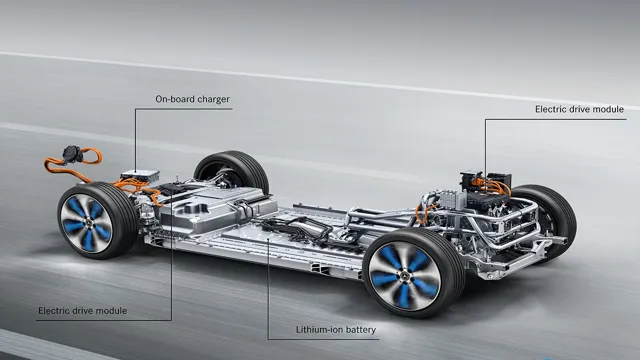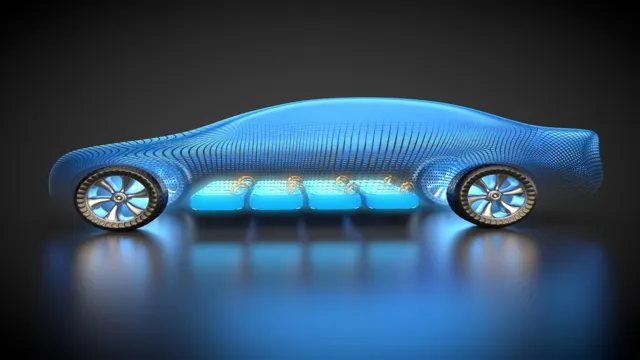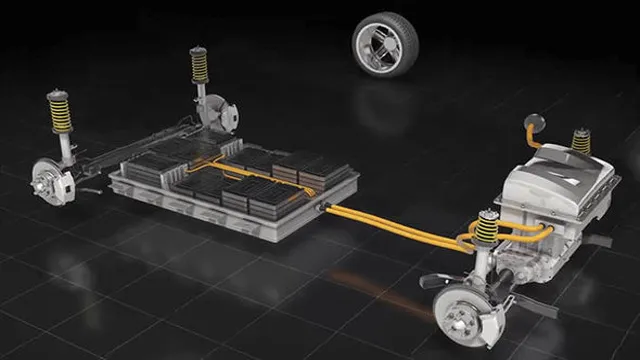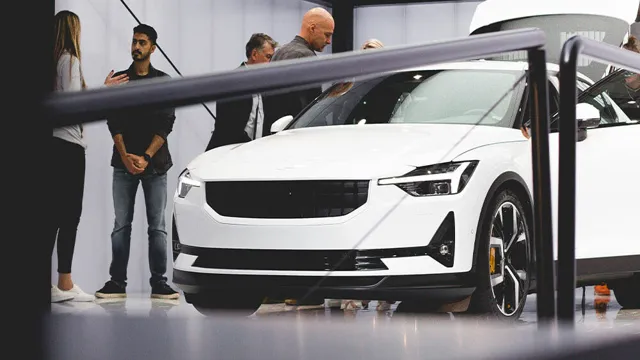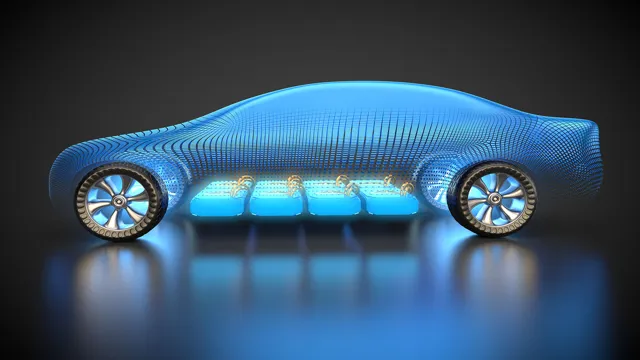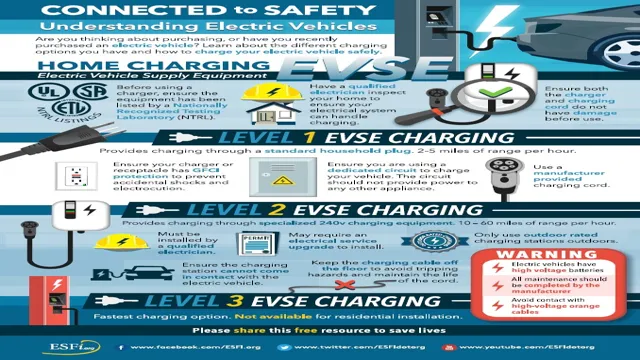10 Revolutionary New Battery Technologies that will Power the Future of Electric Cars
Electric cars are increasingly gaining popularity in the automobile industry, and for good reason. They are environmentally friendly, save on fuel costs and offer a smooth, quiet ride. However, many of them suffer from limitations in range, charging time, and performance.
That’s where revolutionary new solutions in technology come in to transform the electric car game for the better. With the latest developments in technology, electric cars are becoming smarter, more powerful, and more importantly, more practical for everyday use. The future is electric, and the innovations that are being introduced into the electric car sector are nothing short of game-changing.
Electric vehicles are set to revolutionize the way we drive and usher in a new era of sustainable and efficient transportation.
New Battery Technology
Electric cars have come a long way in the past decade, and one of the biggest challenges has been the development of more efficient and longer-lasting batteries. Fortunately, new battery technology is emerging that could revolutionize the industry. One of the most promising new developments is the use of solid-state batteries, which eliminate the need for the liquid electrolyte used in traditional lithium-ion batteries.
This not only improves safety and reduces the risk of fire, but also allows for faster charging and longer range. Another breakthrough is the use of lithium-sulfur batteries, which offer even greater energy density than lithium-ion batteries. These new battery technologies are enabling electric cars to become more affordable and practical for everyday use, while also reducing our dependence on fossil fuels.
As the technology continues to evolve, we can expect even more exciting developments in the years to come.
Introducing Solid State Batteries
Solid state batteries are a revolutionary new battery technology that uses solid electrodes and electrolytes instead of the flammable liquid ones found in traditional lithium-ion batteries. This makes them safer, longer-lasting, and more efficient than the batteries we’re used to. The key advantage of solid state batteries is their energy density, which is up to twice as high as traditional batteries, meaning they can store more energy in a smaller package.
Additionally, they are more resistant to leakage, and since they don’t contain liquid, there is no risk of explosion when damaged. This new technology has the potential to revolutionize the electric vehicle industry, as it offers longer ranges, faster charging times, and lighter weight. While still in the testing phase, many experts believe that solid state batteries will soon become the new norm in battery technology.
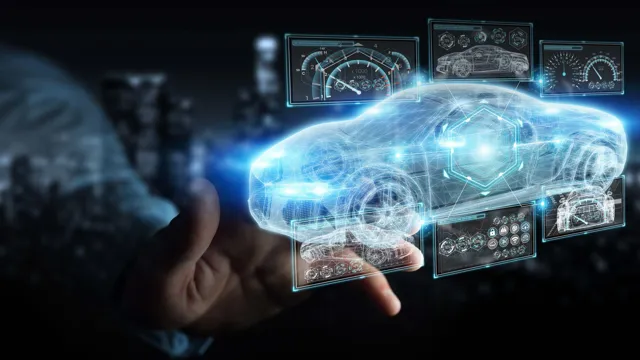
Benefits Over Traditional Lithium-ion Batteries
The latest technology in batteries is proving to be a game-changer. It delivers a set of significant benefits over traditional lithium-ion batteries. The new battery technology offers a higher power density, making them lighter and more efficient.
These batteries have a longer lifespan, which means less wastage, and they are safer to use than their lithium-ion counterparts. The technology behind the new batteries utilizes solid-state electrolytes rather than liquid, which reduces the risk of battery fires. The new tech also makes these batteries more flexible in shape, allowing them to be molded into unconventional shapes to fit the desired device’s design.
It’s an exciting development that opens up a world of possibilities for engineers and product designers alike. These new batteries offer better performance, safety, and flexibility, which is a significant breakthrough in the world of energy storage. With the demand for longer battery life and safer energy storage solutions ever-increasing, this new battery technology is one to watch.
Impact on the Environment
The development of new battery technology is set to have a profound impact on the environment, especially with regards to the increased adoption of electric cars. With the conventional lithium-ion batteries, mining and manufacturing processes lead to massive amounts of carbon emissions and other environmental pollutants. However, with the new battery technologies emerging such as solid-state batteries, which use lithium or sodium instead of graphite, we can expect a significant reduction in environmental harm.
Also, the use of reusable and recyclable materials in the battery production process will minimize waste. By adopting these new technologies, we can significantly reduce our dependence on fossil fuels, and thereby help mitigate climate change. As more people shift to electric cars, and the batteries become more powerful and efficient, we can expect to experience a positive environmental change, leading to cleaner air, less noise pollution, and more sustainable energy consumption.
Reducing Carbon Footprint of Electric Cars
Electric cars have become increasingly popular as people look for ways to reduce their carbon footprint and help the environment. While electric cars do produce fewer emissions than traditional gasoline-powered vehicles, their environmental impact is not completely neutral. The manufacturing process for electric car batteries is energy-intensive and can lead to the release of harmful chemicals into the environment.
However, there are steps being taken to reduce the overall carbon footprint of electric cars. For example, some companies are working on developing more sustainable battery manufacturing processes and using recycled materials in their production. In addition, the use of renewable energy sources to power electric vehicles can significantly lower their carbon emissions.
By using solar or wind power to charge electric cars, their overall impact on the environment can be greatly reduced. While there is still work to be done to make electric cars completely sustainable, they are certainly a step in the right direction when it comes to reducing our carbon footprint and preserving the planet for future generations.
Sustainability of Solid State Batteries
The sustainability of solid state batteries cannot be ignored. One of the major advantages of these batteries is that they are environmentally friendly, and they have less of an impact on the planet compared to traditional batteries. Solid state batteries use non-toxic materials that are less likely to cause harm to the environment and people.
The manufacturing process of solid state batteries also produces fewer pollutants than traditional batteries. In addition, solid state batteries also require less maintenance, reducing the amount of waste generated from replacing old or worn-out batteries. By choosing solid state batteries over traditional ones, we can take small steps towards a more sustainable future.
Potential for Renewable Energy Integration
The potential for renewable energy integration has a significant impact on the environment. As we strive to reduce our carbon footprint and mitigate the effects of climate change, it is crucial to transition to clean energy sources. Renewable energy does not produce harmful emissions like fossil fuels, which contribute to air pollution and climate change.
By harnessing the power of the wind, sun, water, and other renewable sources, we can reduce our reliance on non-renewable fossil fuels and promote sustainable development. This shift towards renewable energy not only creates a cleaner environment but also creates job opportunities and boosts economic growth. With the increasing availability and affordability of renewable energy technologies, it is time to embrace a green energy future.
Future of Electric Cars
The future of electric cars looks bright with the emergence of new battery technology. We now have batteries that can last longer and charge faster than ever before, making electric cars much more practical and convenient. Lithium-ion batteries have been the mainstay of the electric car industry for years, but newer technologies are now emerging.
Solid-state batteries, for example, are more efficient and safer than their liquid counterparts. They are also more compact, which means they can pack in more power in a smaller space. This opens up the possibility of smaller and lighter electric cars that can travel much further on a single charge.
With new battery technologies, electric cars are becoming more accessible and affordable, and are poised to revolutionize the automotive industry. The demand for electric cars is set to soar in the coming years, and with new battery technology, the industry is ready to meet it head-on.
Implications for Automotive Industry
As the world shifts towards sustainability, electric cars are gaining traction in the automotive industry. The future of electric cars looks bright as manufacturers compete to produce affordable, efficient, and eco-friendly vehicles. With the development of better battery technology and charging infrastructure, electric cars are becoming more accessible and viable for everyday use.
As a result, more people are considering electric cars as a means of reducing their carbon footprint. The implications for the automotive industry are significant, as more companies invest in electric vehicle production. This shift highlights the need for a sustainable transport system, and electric cars are just the beginning.
The competition among manufacturers is driving innovation and advancements in electric car technology, resulting in more efficient and affordable cars for the consumers. As a result, the future of electric cars is looking promising, and it is clear that they will play a crucial role in the journey towards sustainable transportation.
Increased Adoption and Accessibility
The future of electric cars seems promising, with increased adoption and accessibility. In recent years, there has been a significant surge in the number of people using electric cars due to their low emission levels and cost savings. In fact, it is projected that by 2040, almost 60% of new cars sold globally will be electric.
This rise in adoption is coupled with improved accessibility and infrastructure. With more charging stations being installed in public places and at homes, range anxiety is becoming a thing of the past. In addition, governments worldwide are offering incentives to encourage the production and adoption of electric cars.
This is seen as a significant step towards reducing greenhouse gas emissions, and also lowering our dependence on fossil fuels. As we continue to forge ahead, the future of electric cars seems bright and promising, and it won’t be long before they become the norm rather than the exception on the roads.
Conclusion – Powering the Future
In conclusion, the future of electric cars looks bright with the advancements in new battery technology. From longer ranges to faster charging times, these new batteries are sure to drive the electric car market forward. With such promising developments, it’s only a matter of time before electric cars become the new “fuel” for drivers everywhere.
So, if you’re tired of paying for gas and want to join the electric revolution, get ready to experience next-level innovation in battery technology.”
FAQs
What is new battery technology for electric cars?
New battery technology for electric cars involves the use of lithium-ion batteries that are smaller, lighter, and have a higher energy density than traditional lead-acid batteries.
How does new battery technology benefit electric cars?
New battery technology allows electric cars to have a longer driving range, shorter charging times, and increased reliability and safety.
Are there any drawbacks to new battery technology for electric cars?
One potential drawback to new battery technology is the higher cost of the lithium-ion batteries. However, as the technology becomes more widespread and the production costs decrease, this is likely to become less of an issue.
What is the future of new battery technology for electric cars?
The future of new battery technology for electric cars looks promising, with ongoing research and development leading to even more efficient and cost-effective batteries. This could lead to a significant increase in the adoption of electric vehicles in the coming years.
